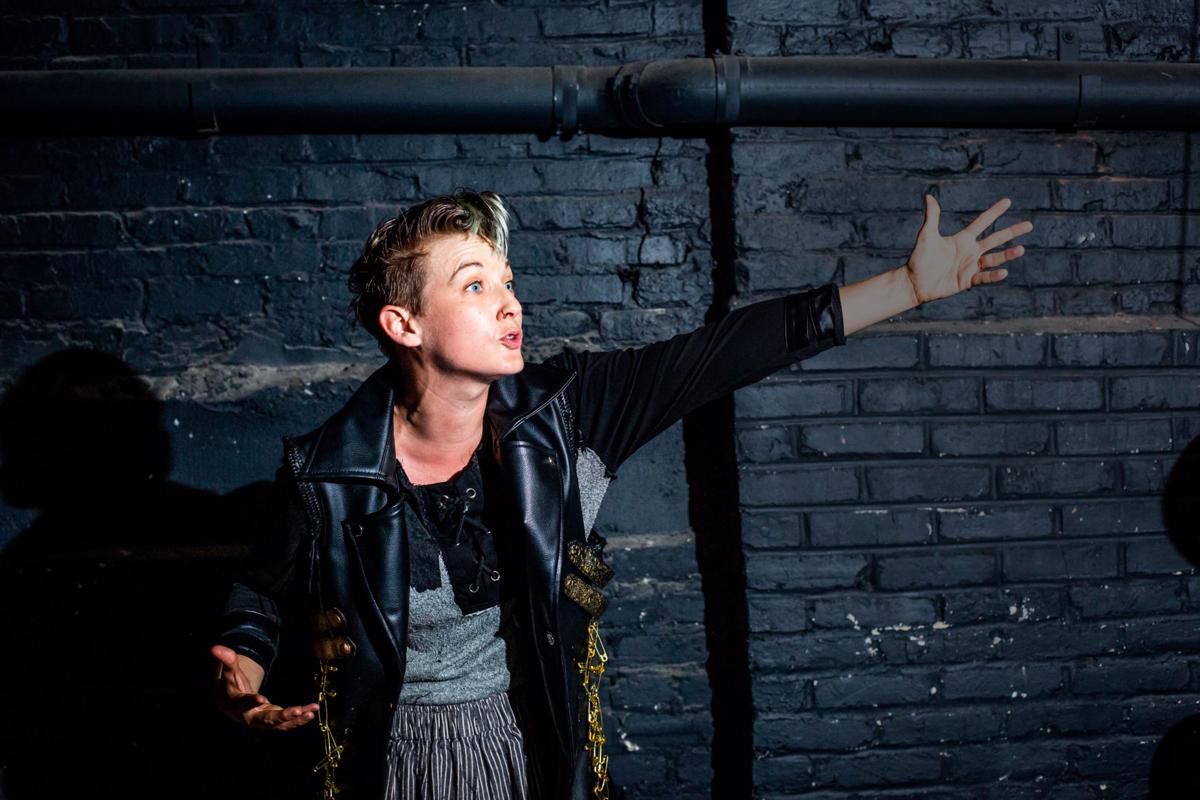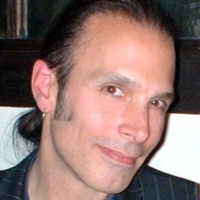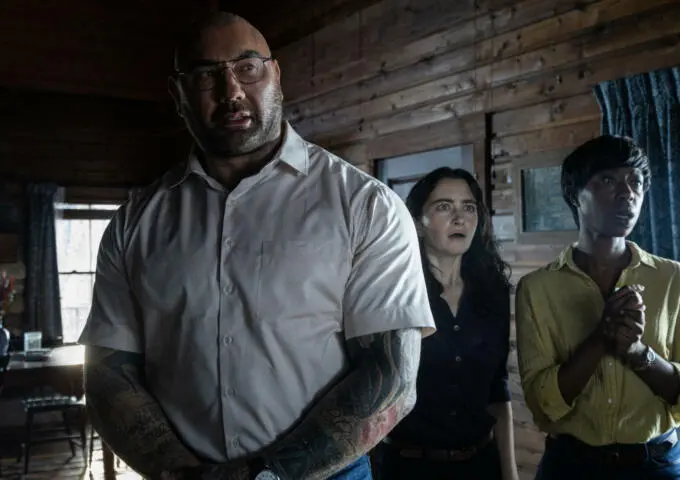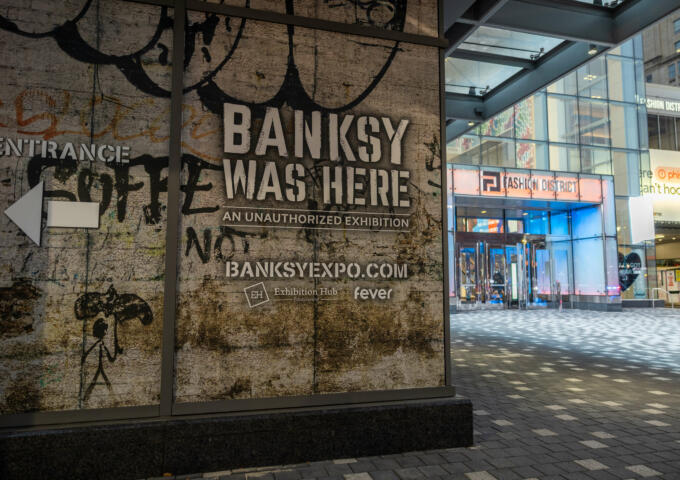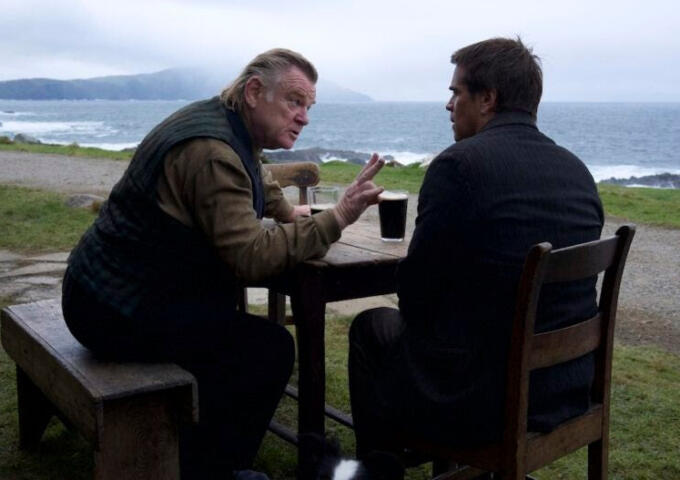Making the Trojan War modern while portraying the allure of valor, along with its carnage, is what’s behind actor Mary Tuomanen and director Rebecca Wright’s deconstruction of An Iliad.
Taking place inside the Bob & Selma Horan Studio of the Arden Theatre, which opens Nov. 14-Dec. 8, the duo’s present-day mash-up telling of Homer’s mix of horror and heroism – translated by Robert Fagles, written by Lisa Peterson and Denis O’Hare – is exquisite fodder for Tuomanen and Wright, whose Applied Mechanics company has, for 10 years and 19 productions, placed raw text and rawer reality into a blender and based its motivations and movement on that.
At the urging of Terry Nolen, producing artistic director of the Arden, Wright attended an intense reading of the screed to love and war, and was floored. “It makes your guts squirm that there would ever be another war,” she said.|
Philadelphia Weekly caught up with Tuomanen and Wright to chat through all of this during rehearsal.
Since you’re worked together as Applied Mechanics on 19 shows within 10 years, when did the relationship click, become what you knew collaboration with another artist should be?
Tuomanen: I moved to Philadelphia chasing a bad love affair, one that ended pretty quickly when here. I didn’t know I was going to stay. After I did that first project with Becky, then another – “Portmanteau,” the second Applied Mechanics show – was when I decided to make these people lifelong collaborators. I will live in this city now, I thought. This is it. Touring “Portmanteau” across the country cemented having my mind blown by Becky as to how we made that show. The prompts she created to write that as a group were tender, complicated and beautiful. I never wanted to make it work any other way.
Wright: Something clicked for me in my life as an artist and as a collaborative artist with that apartment play. When Mary said “yes” to working with me on that second project, something just felt as if it was locking in for a relationship that would be ongoing. One thing that defines my life when it comes to having longtime collaborators is, not unlike a familial relationship or a marriage, is that you CHOOSE it again-and-again-and-again. At every turn, I am committing to relearning from and with you. Then, several years later when people started hiring us together … it no longer felt like somebody else’s room. It felt like our room. We get to do our thing the way it should be done. We own the room. That feeling also became part of my life with Mary outside of Applied Mechanics. At a certain point, you know who your people are, and what sort of artist they help you become.
AN ILIAD, is not an Applied Mechanics show. What aspects of AM do you bring into Homer, Or, is AN ILIAD about working around what you two create as Mechanics?
Tuomanen: There’s definitely similar vocabulary, where text is a raw material and what we make of it is our own. You can see authorial intent in the text. An example from when we started: here’s a Wallace Stevens poem, an advertisement from the 1950s, a list of things on a ship. Mix them up, and use the text as raw material and everything that came out of it – a movement sequence, a song – ground up and pushed through our bodies and imaginations. Similarly, this ILIAD will be different. First, it is not done how you normally see it, by an older cis white man. It will be done by a 38-year-old woman. Some of the elements of authorial intent are awkward for me to accomplish … I mean, I could do it, pretending to be an old dude. I just think it’s more interesting and exciting to push it through my instrument and the combination of mine and Becky’s imagination that’s playful in the way we’re playful and dangerous in the way we’re dangerous. And draws attention to aspects of AN ILIAD that are often overlooked, such as the young women who are used as chattel about whom Aristotle and Agamemnon argue about at the play’s beginning – for us, those women are important. We’re using them as characters. Different things have different weight. It’s exciting.

Wright: As a director of text-based work in my freelance life, I’m very aware of starting with the puzzles. It can be the greatest play in the world, and I’m like “What is this unstageable crap?” The puzzles in AN ILIAD are more front-and-center, which is thrilling because you don’t have to have the conversation about how to fix it. It’s high invention from the start that we approach with a lot of our devising tools.
In terms of currency, how does your ILIAD connect to modern warfare, literal, figurative, digital?
Tuomanen: As it stands, the piece has all these great warriors out on the field, emphasizing how gorgeous their bodies are, how capable and strong they are, before you see them getting hacked to bits in a graphic manner for, effectively, nothing. They’re fighting for some treasure, property and a broken marriage, which seems absurd to lose hundreds and thousands of people over. But, also because the war persists because the gods want it to. There’s definitely a strong link made, in our case, between the 1 percent, corporations and special interests for whom capitalism must be fed by conflict – who never are risking themselves or their loved ones, who will always live in comfort – and those who are on the front lines being hacked limb-from-limb, losing resources and being separated from loved ones. That is an eternal story – those who fight and those who benefit from that fight.
What are you hoping audiences will walk away from AN ILIAD thinking?
Tuomanen: I hope people will be really mad, and feel activated and empowered to stand up and stop the atrocities that larger governments are perpetrating on smaller nations, vulnerable minorities and are complicit in the tribalism that supports genocide and sends people to foreign countries they have no business being in to die for causes they have no business dying for.
